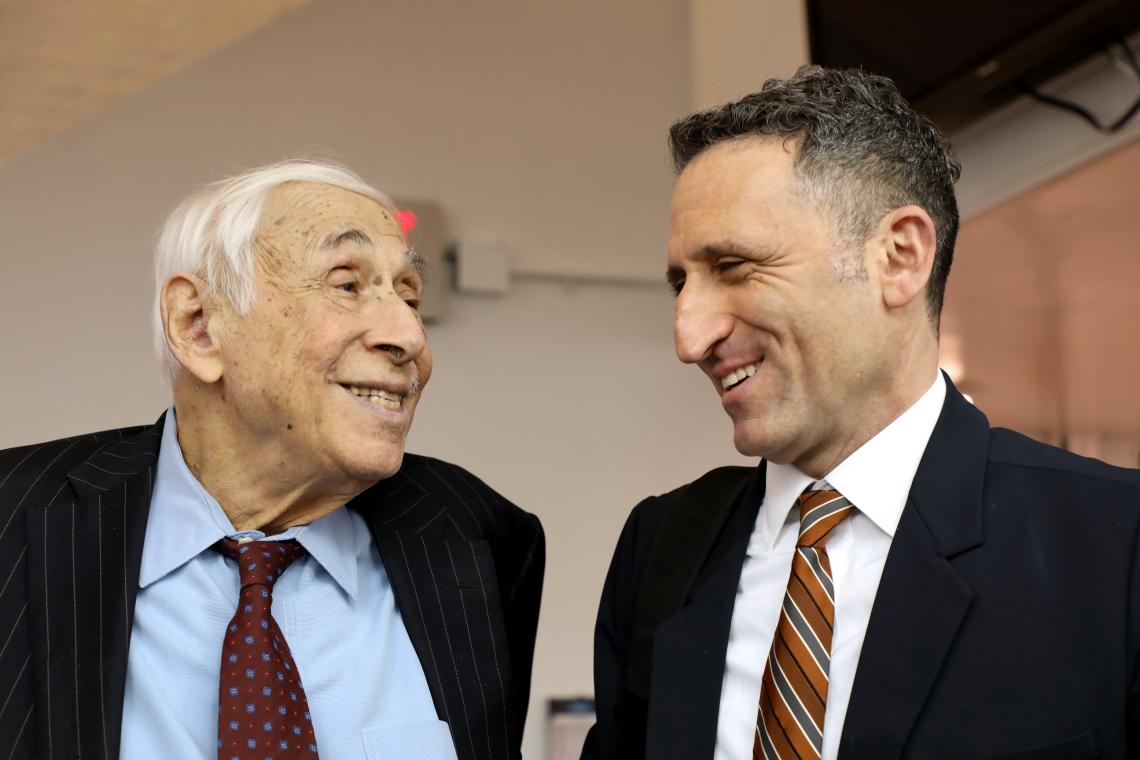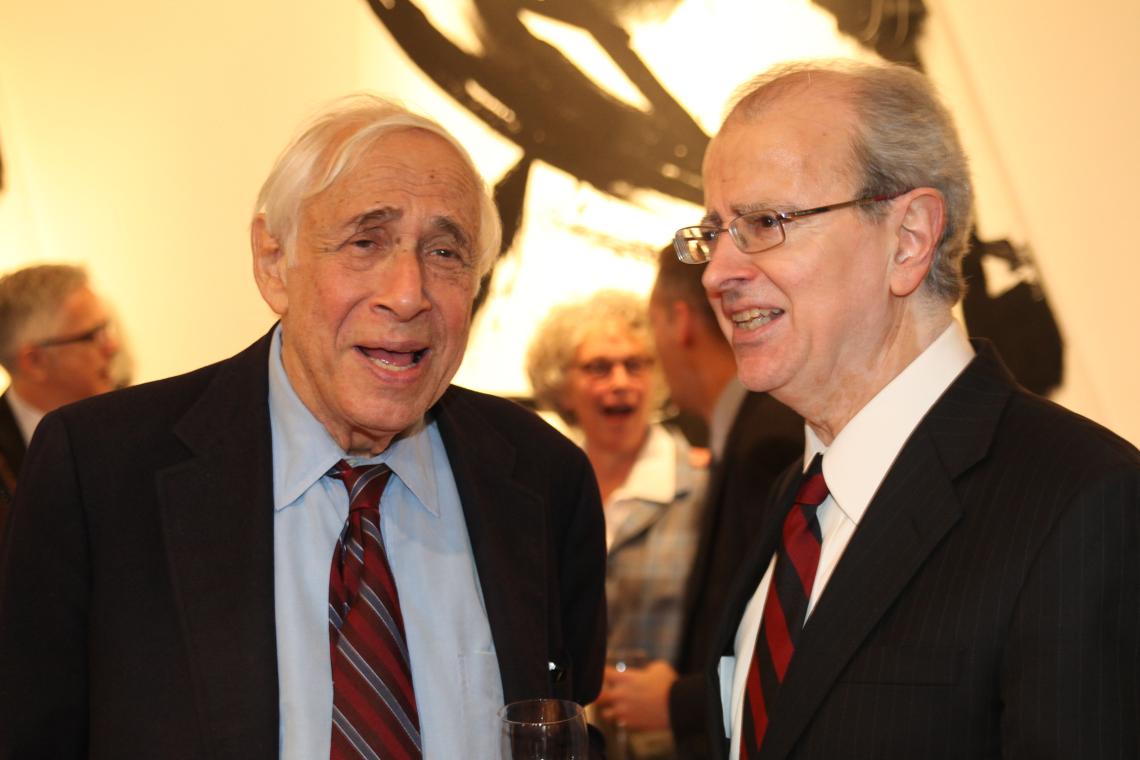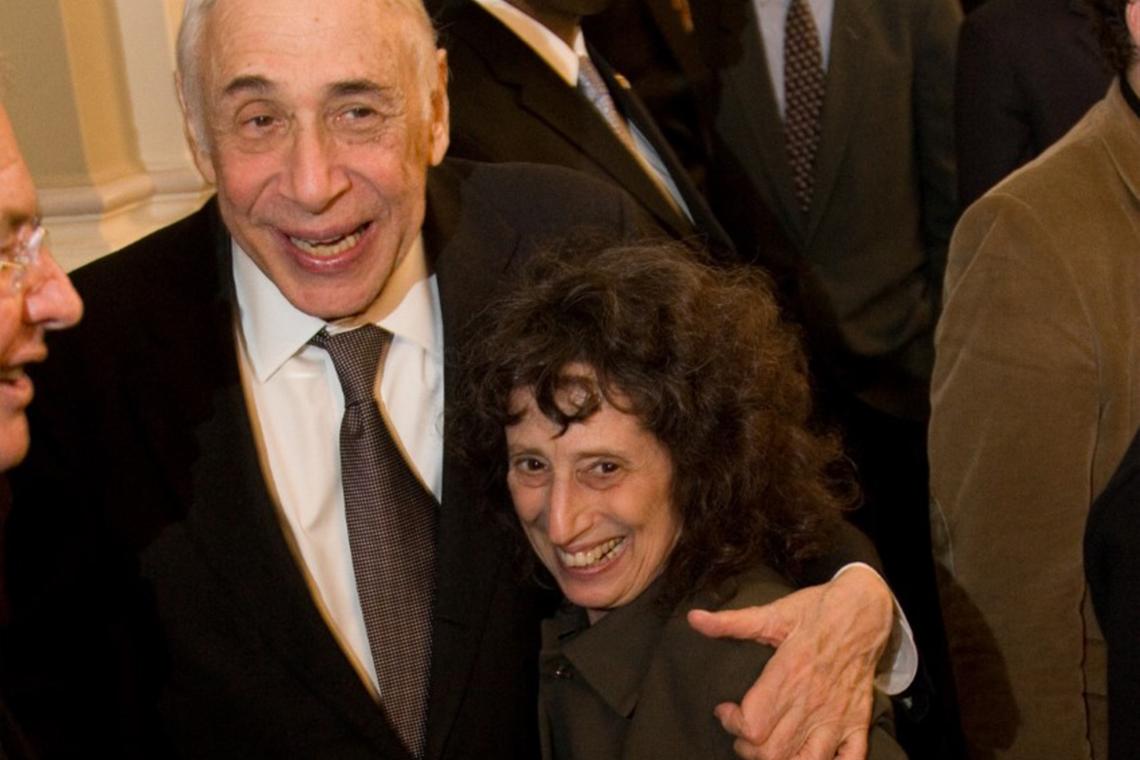
Herb Sturz launched pivotal justice reforms in New York and beyond—and helped inspire the founding of the Center for Court Innovation. We mourn his passing yesterday at the age of 90 and honor his leadership and enduring contributions to the transformation of government and justice.
Throughout his long career, Sturz’s work was distinguished by a commitment to dignity, fairness, and eliminating the harm done to society’s most marginalized groups and individuals.
Sturz was among a small group of civic leaders in the 1990s who came up with the idea for the Midtown Community Court, which implemented new responses to low-level crime. The establishment of the small local courthouse featuring a single judge and on-site social services was a marked departure from the massive downtown courthouse. By offering services like job training and parenting education rather than jail and fines, the Midtown Court spawned an international movement of community courts that have sought to reduce incarceration and give members of the community—as volunteers, advisors and partners—an active role in justice.
A good way of learning something is by doing something. – Herb Sturz
The Midtown Court paved the way for the founding of the Center for Court Innovation in 1996. Sturz, who served as a deputy mayor under Mayor Edward I. Koch, played a role in the creation of 20 nonprofit organizations, including the Vera Institute of Justice, Safe Horizon, and Harlem Defender Services. He had a leading role in creating the Independent Commission on New York City Criminal Justice and Incarceration Reform (also known as the Lippman Commission), which authored the current plan to close the Rikers Island jail complex. Many of the ideas advanced by the commission started with Sturz in the 1970s when, as a deputy mayor, he proposed closing Rikers and replacing it with smaller, more humane and accessible jails in the boroughs.
Sturz had been at the forefront of many battles to make the justice system more humane. In the 1960s, he was a leader in trying to end the overuse of cash bail and decades later played a role in curtailing the abuses of stop-and-frisk.
He was a proponent of piloting projects—like the Midtown Community Court—to test their efficacy. “A good way of learning something is by doing something,” he said in 2013.
In a podcast recorded in 2010 for the Center, Sturz said two of the keys to his ability to bridge differences among potential partners was persistence and understanding everyone’s perspective.
“I’m persistent. If I care about a problem, I stay with it and I try to understand it from everyone’s point of view. If you’re arresting somebody or stopping and frisking someone down on the street, what is the impact on the person who’s stopped? What’s the impact on the person’s family? … It’s really a way of looking at a problem and not assuming you have a lock on knowledge.”
The Center’s leaders, present and past, credited Sturz for his role in helping launch the Center and his lasting impact on justice reform.
“Beyond the many visionary programs he launched and causes he championed, Herb Sturz mentored leaders of a new generation from all walks of life,” said Courtney Bryan, the Center’s executive director. “I worked closely with Herb on the Lippman Commission. One of the many things I appreciated was his accessibility. He was always available as a sounding board and guide, and treated everyone the same, from the most powerful people in the country to a young planner seeking his counsel.”
Greg Berman, former director of the Center, said Sturz touched anyone who worked in justice reform over the last five decades. “I am no exception,” Berman said. “He provided a crucial template for me as a professional and for the Center for Court Innovation as an agency. In particular, he believed in public-private partnership, in action research and in fighting on behalf of underdogs. All of these qualities became part of the DNA of first the Midtown Community Court and then the Center for Court Innovation, helping to shape the values and trajectory of these important institutions.”
“Herb taught me about the unique qualities required to introduce reform in fields, like the justice system, that resist change,” said John Feinblatt, the Center’s founding director and president of Everytown for Gun Safety. “Herb was curious, always asking questions. He believed in partnership and bringing everyone to the table. He believed in data and evidence. And he was resilient, ready to change course if evidence pointed to a better way. Above all, he led with his humanity, measuring his work by its impact on the public good.”


